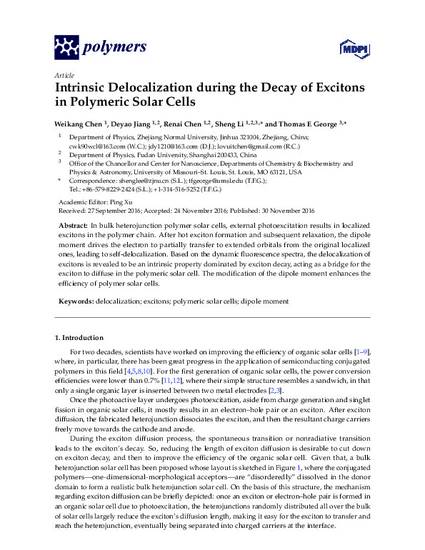
Article
Intrinsic Delocalization during the Decay of Excitons in Polymeric Solar Cells
Polymers
(2014)
Abstract
In bulk heterojunction polymer solar cells, external photoexcitation results in localized excitons in the polymer chain. After hot exciton formation and subsequent relaxation, the dipole moment drives the electron to partially transfer to extended orbitals from the original localized ones, leading to self-delocalization. Based on the dynamic fluorescence spectra, the delocalization of excitons is revealed to be an intrinsic property dominated by exciton decay, acting as a bridge for the exciton to diffuse in the polymeric solar cell. The modification of the dipole moment enhances the efficiency of polymer solar cells.
Disciplines
Publication Date
2014
DOI
10.3390/polym8120414
Citation Information
Thomas F George, W. Chen, D. Jiang, R. Chen, et al.. "Intrinsic Delocalization during the Decay of Excitons in Polymeric Solar Cells" Polymers Vol. 8 Iss. 12 (2014) p. 1 - 9 ISSN: 20734360 Available at: http://works.bepress.com/thomas-george/92/
